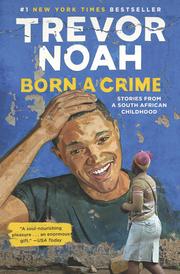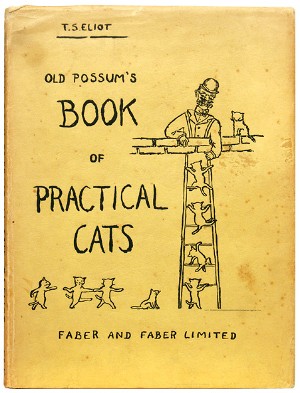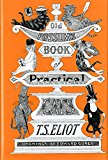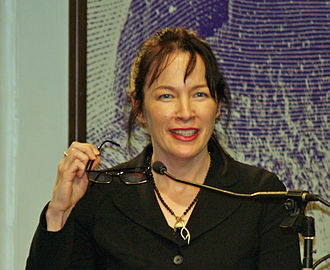the Rosie Project
the Rosie Project by Graeme Simsion
Don Tillman is the narrator of this story where he thinks he has found a solution to “the wife problem”.
He is a geneticist and has developed a questionnaire to use for this project Don is challenged, almost robotic. He doesn’t understand social cues, barely feels emotion and can’t stand to be touched.
His best, and almost only friends, are Gene and Claudia who are psychologists. Gene works at the same university, thanks to Don’s help. Claudia helps Don balance her husband Gene’s suggestions for his interest in Rosie who is a graduate student in Gene’s department. Claudia, as a joke answers Don’s questionnaire for "the wife project".
Rosie is interested and Don finds her beautiful and in many ways, they hit it off right away but then she is just unsuitable as the questionnaire clearly shows. Rosie seems to see through some of Don’s perceived weaknesses.
Rosie and Don get to know each other. He learns of her own project regarding her father. It really is a challenging and complicated “father project” and one that Don is well qualified to help with. Don of course rules her out for the wife project but agrees to help her on the father project. We watch him fall in love with Rosie, not even knowing he is. We see much of the same happen to Rosie.
Don’s nativity serves to dissect the step by steps taken in their relationship. He does seem a little nuts, but oddly we all see some of our self in his simplistic approach. We feel bad for, and laugh, as Don tries to understand his own feelings and Rosie’s. Rosie’s father project leads the two from Australia to New York. The twists and turns of that story are funny.
Graeme Simsion is a skilled writer. His scenes make you feel that you are in the story. Don in his methodical well-reasoned approach seems to be the real Don and he seems likable and believable. He changes or at least can manage change when needed as the plot goes on and it is funny but wonderful in its own way.
Graeme Simsion Quotes
“I haven’t changed my mind. That’s the point! I want to spend my life with you even though it’s totally irrational. And you have short earlobes. Socially and genetically there’s no reason for me to be attracted to you. The only logical conclusion is that I must be in love with you.”
“If you really love someone,' Claudia continued, 'you have to be prepared to accept them as they are. Maybe you hope that one day they get a wake-up call and make the changes for their own reasons.”
―
String Theory by David Foster Wallace on Tennis
David Foster Wallace died September 12th, 2008. He was 46 years old
An Art Teacher once told us that the phrase he hated to hear most was “I don’t know much about art but I know what I like”. Well I didn’t know much about Tennis but David Foster Wallace pointed the way to what is really exciting about it.
Of the 5 essays, I really liked most“How Tracy Austin Broke my Heart” and “Federer, both Flesh and Not”.
One exposure only to this writer and his love of the sport is enough to be contagious. His skill in writing made the difference in how well these ideas could be addictive.
“The Truth will set you free. But not until it is finished with you."
This quote is from Foster's 1996 novel, "Infinite Jest". Time magazine included that novel in its 2005 list of the 100 best English-language novels published since 1923. that seems to support the overall writing skill that I found in this novel. Much of what he writes in “String Theory” seems to want to look closer at the truth behind what is happening in the vairous actions and lives around tennis.
In physics “String Theory” is a term that is used to understand a theoretical framework where things described as strings interact with each other. The interaction and implication that tennis and life have was explored in an interesting way in this book.
If I finish a book and then glad that I read it, it was a success. This book was just that.
Stories of Your Life, by Ted Chaing
Stories of Your Life and Others
by Ted Chaing
"Stories Of Your Life and Others" by Ted Chiang is contemporary science fiction. The book has 8 stories that originally were published separately. "Stories of Your Life" is both the book title and the fourth story in the book. It is the story that the movie Arrival was taken from.
There is also at the end another short chapter called story notes. It may be useful to read it first? The other chapters in this book are also very thought-provoking. I liked his fictional twist to the Bible story about the Tower of Babylon. His story "Division by Zero" would for sure be fascinating except for me it left me wishing my math foundation was stronger.
Clearly Ted Chiang is a very skilled writer. His approach to science makes you think. His stories are not causal reads. The movie chapter is about a linguist expert who was called to communicate with Aliens who were" heptapods" and had two distinct forms of language. Heptapod A, their spoken language. and Heptapod B, their written language. The relevance of what time really is ,for the Aliens and then for us, was also a key component of the plot.
Both the movie and the book are very thought-provoking. When I first read the book I finished it and the same day went to the movie. I was surprised that I found myself liking the movie more. I felt that was unusual and I posted my thoughts at that time in my post titled "Are Books Always Better Than the Movie". I have thought more about the comparison since then and have changed my thinking some. For me I still would prefer the movie mostly because the story line was more exact and I felt a closer connection to the characters. The pluses for the book could be that you may find yourself sort of feeling and sensing what was happening. That may lead to your having more options for the issue of how time worked with past presence and future. The book was very good. The movie was great.
.
Under The Dome by Stephen King
A science fiction novel published in 2009. I have read many of Stephen King's books so why I had not read this one may have a little to do with the fact that it is almost 1100 pages. It had a TV series built around it but I never watched it because I thought I would eventually read it, which I finally did earlier this year.
I have been a little cautious over the years in reading the Stephen King books I have read because they are just scary. Under The Dome was a mixture of some scary things, interesting plot, and especially a study of the people suddenly sealed off in a small New England town.
A force field came down over the town and the people were trapped. Families were split. There was no escape. King knows exactly what scares people and the plot covers most of them.
The cast of people is one that fits the setting perfectly. The hero is a Iraq veteran and the villain is, Big Jim Rennie, a local power broker.
The psychological insight into the minds and motives of the small town people is right on target.
The book reminds me of his book "The Stand" in how a large cast of characters bring about the plot. It is well worth the reading. Glad I skipped the TV series.
The 100-Year-Old-Man Who Climbed Out The Window and Disappeared
The 100-Year-Old-Man Who Climbed Out of the Window and Disappeared
By Jonas Johasson
Allan Karlsson climbs out of the window of the Old Folks’ Home to avoid his 100th birthday party. What happens next is funny and you would expect that to be what the book is about. It turns out that what happened before that day, over Allan’s life, is even funnier.
He climbs out of the window, in his slippers, and heads to the bus station, not caring where he will go. While waiting for the next bus without much thought about it he steals a suitcase and gets on the bus. It did occur to him that the suitcase might have some shoes in it. The suitcase’s owner is a criminal and he is very upset and works hard trying to get it back.
The story goes back and forth between the current chase and events from his prior very full life.
I must admit that for me Allan Karlsson seemed to be Alan Alda. Not just because they are both named Alan but they shared a comic aloofness.
I kept seeing and even hearing Alda as I read about Karlsson. I won’t say any more and maybe it is unfair to mention this because you may now fall into the same trap if you read this book
Karlsson was an explosive expert throughout much of his life. This skill enabled him to get the attention of many world leaders including Franco, Truman, Stalin, Mao and Kim Il Sung. He has no personal political leanings but worked for all sides inadvertently. His travels take him all over the world as he intersects with world events from Los Alamos, New Mexico to North Korea.
The book is silly. The events and coincidences are absurd. It weaves history in to a fictional life in a masterful way. The story will hold the readers interest from beginning to end. A rare accomplishment for any book. A great cure for the blues, especially for anyone who might feel bad about growing older.
Jonas Jonasson is a Swedish journalist and writer, best known as the author of the best-seller
About Trevor Noah and His Book, "Born a Crime"
About Trevor Noah and His Book, "Born a Crime"
Before reading this book I didn't know who Trevor Noah was and I knew nothing about growing up in South Africa in the 1980's and 1990's.
On the dedication page Trevor writes: "For my mother, My first fan. Thank you for making me a man." His thoughts about his mother throughout this story explain a lot.
His story of his becoming a man is inspiring, I starts with the country under apartheid and then the transition that followed it.
Trevor's mother Patricia taught him to face injustice with humor and that must have sowed the seeds for who he is today.
“If my mother had one goal,
it was to free my mind.”— Trevor Noah
His birth into this world began as a criminal act. He was "Born a Crime", to a white Swiss father and a black Xhosa mother at a time when such a union was punishable by five years in prison.
During the early years of his life he spent most of his time inside so as not to be noticed. The government could have taken him away from his mother and his dad didn't live with them and couldn't even walk by him on the street.
After Apartheid ended a time came when he and his mother began a new life trying to live openly and freely but they still had many challenges with life the different groups and subgroups.
"language, even more than color, defines who you are to people.”
“Chapter 4: Chameleon"
"it is useful to know the language of your oppressor."
“Chapter 4: Chameleon”
Trevor was smart and his education and resourcefulness was his life line to success.
The book is his memoir of growing up in South Africa. It was challenging, sad, and even funny, but the true story of the book is in his love for his mother. The Trevor America knows best is of him from the desk of the Daily Show.
If you want to buy Born a Crime through your own Amazon Account hit the buy button below and then proceed with it takes you to Amazon
He has a facebook page.
https://www.facebook.com/OfficialTrevorNoah/
He also has an instagram account.
https://www.instagram.com/trevornoah/?hl=en
Old Possum's Book of Practical Cats, & Cats, the Musical
I loved the Play "Cats". It tells a story based on the poems from T.S. Eliot’s book- “Old Possum’s, Book of Practical Cats. My very favorite part of the play was the beginning of the second act. As it started out it said- “We had the Experience but missed the meaning”. We don't want our lives to be like that, we want to find the meaning of our experiences.
The story is of a tribe of cats called the "Jellicles" and the night they make "the Jellicle choice", which was to decide which cat will ascend to the Heaviside Layer and come back to a new life.
Andrew Loyld Webber produced the play. Late in the production, and probably not part of the original plan, the director, Trevor Nunn, wrote the song Memory. He based it on T.S Eliot’s poems, “Preludes” and “Rhapsody on a Windy Night”. The song, "Memory", proved to be the most popular song from the play. It was sung by the cat character Grizabella who was once a glamour cat but had become only a shell of her former self. The song is a remembrance of her glorious past and of her wish to start a new life. It is presented in the first act, but then again near the beginning of the 2nd Act. The song results in Old Deuteronomy choosing Grizabella to be able to go back and have another life.
Music has a way of taking us back to a time and a place. Memories are found by the music, as it seems to activate the brain. This happens in the medial prefrontal cortex region of the brain, which is one of the last to be changed with Alzheimer’s disease. That may help to explain why music can elicit such strong responses from people with Alzheimer's disease.
Many songs will bring back specific memories for us. Musicals often introduce songs, that are so powerful years later they easily bring back the first time you heard them. Examples of musicals that do this well are: Les Miserable, Phantom of the Opera, and Cats.
Memory
Barbra Streisand recorded “Memory” in 1981. Her presentation was awesome. It seems like it was made just for her to sing. The song took Grizabella and those that heard it back to a time and place and those memories expressed earned her another life.
In 2009 when Scottish singer Susan Boyle performed this song, at her audition for the third series of the British reality TV show Britain's Got Talent, her career sky rocketed. She seemed in many ways to be the character Fantine.
The Song
Midnight, not a sound from the pavement, Has the moon lost her memory, She is smiling alone In the lamplight, The withered leaves collect at my feet. And the wind begins to moan
Memory, all alone in the moonlight, I can dream of the old days, Life was beautiful then, I remember the time I knew what happiness was, Let the memory live again
Every street lamp seems to beat, A fatalistic warning, someone mutters and the street lamp sputters, and soon it will be morning
Daylight, I must wait for the sunrise, I must think of a new life, And I mustn't give in, When the dawn comes, tonight will be a memory, too, and a new day will begin.
Old Possum's Book of Practical Cats, & Cats,
Homo Deus, A Brief History of Tommorrow
Yuval Noah Harari, the author of "Homo Deus, A Brief History of Tomorrow", builds on the past and projects the "History of Tomorrow". He writes that the 21st century will brings a big shift in the trends of events that will have a real impact on life as we know it and then asks, "what if we actually found a way to achieve “bliss, immortality, and divinity?”
Achieving these goals sounds good but he explores the down side if it turns out that only a small select group accomplish this by upgrading themselves through biotechnology and genetic engineering, and then leaving the masses behind. The "Homo Deus" of the future might just be the special few who, using artificial intelligence, know us better than we know ourselves.
The book defines the history of humans as "humanism". It adds that "the single greatest constant in history is that everything changes". From this it concludes that looking at humanity according to the humanist creed, where the universe revolves around humankind, will also change.
Humans throughout history have sought for deliverance from famine, disease, and war, and have done so with some success. The resulting toll on humanity looking back has been huge, but today your more likely to commit suicide than be murdered, and are more at risk of dying of obesity than starvation. This book talks about how delicate life has been, but it also compares the past with the real progress that has been made and what changes may occur next.
In the book’s final section, Harari talks about a change in religion in which the greatest moral good is to "increase the flow of information". This new religion “has nothing against human experiences,” he writes; “It just doesn’t think those experiences have intrinsic value.” What has value is "information" and it is the new religion.
The book looks into much of what has traditionally defined humanity and then takes those trends in surprising directions. Whether you agree with the conclusions or not it is an interesting book to read.
Things Fall Apart, by Chinua Achebe
It has been at least 20 years since I first read “Things Fall Apart” and discovered it's author, Chinua Archebe. The book must have resonated with others because today it is the most translated African work of all time. It has been translated into 50 languages and has sold over 8 million copies.
In “Things Fall Apart” the main character was Okonkwo from a village in Nigeria. He was a warrior, father, and husband. A single minded hard man.
In the beginning of the book the Africans appeared uncivilized. As the book proceeded we understand that they were indeed a African tribe with strong traditions and values.
The dignity and humanity of their lives just falls away with the influence of the white missionaries and intruders, whose teachings are foreign to the tribe and of which resistance is impossible. The Christian salvation just doesn't resonate.
Okonkwo can't change himself, and seems to be alone in his understanding of what is happening, and he commits suicide. The culture is lost and a civilization is lost
Quotes
“The white man is very clever. He came quietly and peaceably with his religion. We were amused at his foolishness and allowed him to stay. Now he has won our brothers, and our clan can no longer act like one. He has put a knife on the things that held us together and we have fallen apart.”
“There is no story that is not true, [...] The world has no end, and what is good among one people is an abomination with others.”
The Lovely Bones
Alice Sebold, author of "The Lovely Bones" in 2007
"The Lovely Bones", by Alice Sebold, was published in 2002. It has sold millions of copies and been on best sellers lists for year. When you see all the reviews you find that many people love it but many hate it. It is dark and not for young kids but it has a different approach. The book is a commentary from heaven by the brutally murdered victim of as serial killer and pedophile.
“My name was Salmon, like the fish; first name, Susie. I was fourteen when I was murdered on December 6, 1973.” This is the first sentence but it is Susie’s voice that tells of her brief life, her tragic death, and the decade that follows as she sees it from heaven.
The author, Alice Sebold’s, first book was not fiction and dealt with her own death. In this book Susie Salmon tells of her own rape and murder by a neighbor. In a controlled matter of fact voice she tells of the deep emotions and grief of her family over the years that follow. The struggles of both her parents, sister, and brother. She watches everyone she knew on earth including her killer from heaven. After she died as she moves on into “her heaven” and it was her friend Ruth that her soul briefly touched as it left.
Ruth then becomes friends with Ray Singh who was the first and only boy to have kissed Susie. She eventually comes back briefly using Ruth’s body and has one more experience with Ray.
Her parents have very different reactions to the tragedy and their stories that follow the event are a lesson or at least an experience in grief and in love. The tenderness of their feelings for each other add a lot to the story.
Susie says of her life and the time that follows it: “The events that my death wrought were merely the bones of a body that would become whole at some unpredictable time in the future.”
The ending of the book shifted the dialog form the "matter a fact" overview of most of the book. The value of the story is not in the ending but in the feelings shared all through the book. I felt it was well written in a graceful style.
This paragraph comes on the page before Chapter One.
Inside the snow globe on my father's desk, there was a penguin wearing a red-and-white-striped scarf. When I was little my father would pull me into his lap and reach for the snow globe. He would turn it over, letting all the snow collect on the top, then quickly invert it. The two of us watched the snow fall gently around the penguin. The penguin was alone in there, I thought, and I worried for him. When I told my father this, he said, "Don't worry, Susie, he has a nice life. He's trapped in a perfect world."
"The Heart A Novel"
The French author, Maylis De Kerangal, wrote this novel about three 20 year old French men who go surfing in the middle of the night and on the way back they have a terrible accident and one man dies.
The book starts with the sentence: "The thing about Simon Limbres's heart, this human heart, is that from the moment of his birth, when its rhythm accelerated, as did the other hearts around it, in celebration of the event......................" . The sentence continues for more than a page.
Many of sentences are long and often are as poetic as this first one. You find yourself seeing this human, and his connection to his heart, differently. The story really is about his heart, his death, and the care and grief that follow. The heart and the event itself has a poetic feel to it because of the writers approach.
Bill Gates review this book and called it "A poetic novel about grief".
Kirkus review said "Doctors and other medical experts hasten to prepare a young man’s organs for transplant and reckon with the need to be both compassionate and precise in a hurry." The story of the heart and the young man are seen from the parents, friends, hospital staff, doctors, and even the body itself's experience with this tragic event. We share in the grief and the book is one you will not want to put down
Lincoln's Greatest Speech
Lincoln's Greatest Speech, The Second Inaugural by Ronald C. White Jr. is a treasure.
The "Contents" page captures the unique approach that the author, Ronald C. White Jr., approached this book with. Each chapter is a focus on on of eight key area of the speech.
Chapters
1. "Inauguration Day"
2. "At this second appearing.."
3. "And the war came".
4. "Somehow, the cause of the war..."
5. "Both read the same Bible & pray to the same God.."
6."The Almighty has His own purposes."
7. "Every drop of blood drawn with the lash, shall be paid by another drawn with the sword".
8."With malice towards none; with charity for all..."
A favorite thought worth pondering is in the third verse of chapter 5. It says,
"Both read the same Bible, and pray to the same God ; each invokes His aid against the other. It may seem strange that any men should dare to ask a just God's assistance in wringing their bread from the sweat of other men's faces: but let us judge not that we be not judged. The prayers of both could not be answered; that of neither has been answered fully".
"Wringing their bread from the sweat of other men's faces" reminds us of Genesis 3:19 where it says that "By the sweat of thy face you will eat bread". Addressing slavery in this way is brilliant.
Lincoln's surpassed any previous President with his use of the Bible in his speeches. This speech acknowledged the universal use of the Bible on both sides of the war and in doing so brings God's influence and leverage into the discussion.
The book helps understand the deep insights of the "The Second Inaugural, Lincoln's Greatest Speech. The best summary statement of this effort is from Lincoln:
"I claim not to have controlled events, but confess plainly that events have controlled me".
The Cat In The Hat / Should Adults Read Kid Books?
C.S. Lewis said, "A children's story that can only be enjoyed by children is not a good children's story in the slightest."
Albert Einstein said, “If you want your children to be intelligent, read them fairy tales. If you want them to be more intelligent, read them more fairy tales.”
















































